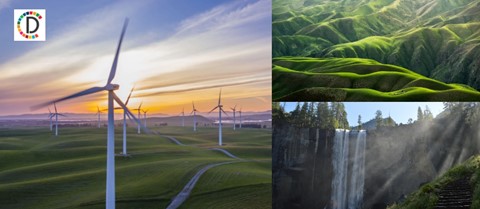India-US saw dramatic changes in ties in 20 yrs, will "fix" their trade issues: Jaishankar

- Country:
- United Kingdom
India and the US have experienced dramatic changes in their relationship in the last two decades, External Affairs Minister S Jaishankar has said, exuding confidence that the two countries will find a way to "fix" their bilateral trade disputes. Jaishankar said the world was increasingly becoming multipolar and is unlikely to return to bipolarity, predicting that a strategic appreciation of the emerging global landscape would bring India and the US closer.
"I can't believe that people today are less ingenious than we were in our time. So I'm reasonably confident that we will find a fix," said the top Indian diplomat who is currently on a three-day official trip to Washington DC. One of the challenges is really how do one define the issue for which they are trying to find a fix, he said.
"My understanding of the conversations is that he (Piyush Goyal) has had with his counterpart and (that) his officials, have had – team to team - that there's been a very intense engagement. I am hopeful that something would come out of it," Jaishankar said at an event here on Tuesday. The External Affairs Minister said that ahead of the New York meeting between Prime Minister Narendra Modi and President Donald Trump, there were multiple rounds of very positive conversations on the trade issue.
"I think they needed more time. Many of their issues were more complex," he said, adding that he has been telling the Indian press that trade deals are much more complicated than they think. "It isn't simple arithmetic. A lot of variables are out there. So we will have to work our way through that," he said.
Trade officials from the two countries would naturally want progress on what are considered to be the outstanding issues, Jaishankar said. "But I think there's also some desire to look beyond. So when people speak about what's gonna be the a trade deal, we'll have to see about that goes," he said.
"So it's going to be sort of you trade the size of it and the complexity of it for the time and the energy for it. I think that part of it is still a little open, but again, my understanding is that they would be talking with each other continually over the coming days," Jaishankar said. Referring to the historic "Howdy, Modi" event in Houston last month, Jaishankar said "we couldn't have conceived" of such an event 10 years ago.
The "Howdy, Modi" event in a sense reflects a phenomenon which is going to be the future of the world, which is a flow of talent from one geography to the other, he said. "You've really seen in the last 20 years a dramatic change in this relationship. And dramatic change between big countries is not that common," he said.
"When I say dramatic change, there isn't a sector today you wouldn't say that there has been a very, very high growth rate," he said the top Indian diplomat. Fifteen years ago, the Indian military had virtually no American equipment in its inventory. And today India flies American aircraft, two American helicopters, have American artillery, and have an American ship, Jaishankar said.
"That's a huge change. It's not just equipment. It's whole culture and understanding which goes with all of that," he said. "If you look at the politics of the relationship, including security and defense, we have moved to from, actually a very difficult history, sometimes actually a hostile one, to something which today the level of comfort between the Indian and American systems as it were is enormous," he said.
Jaishankar said the bilateral relationship was really on a roll, be it in sectors such as education, talent, economy, defence or tourism. "The challenge for us is how do you actually keep up that pace, maybe even accelerate it, look at new horizon. Look at the future of the world, where we are going to be in that world, and how do we get the most out of the relationship, in all of this," Jaishankar said.
"There was a time I mentioned to someone where actually an Indian entering the Pentagon would be an oddity. Today, if they don't see one every hour, they kind of miss us," he said, amidst laughter from the audience. Emphasising upon the emergence of a multipolar global scenario, Jaishankar said in this world, what are presumed to be intractable challenges will have to be addressed, not ducked, citing recent changes in Jammu and Kashmir as an example to this approach.
He said it was difficult to foresee a return to a bipolar world even amid the sharpening contradictions between China and the West, saying the landscape has now changed irreversibly. "Other nations are independently on the move, including India. Half of the twenty largest economies of the world are non-western now. Diffusion of technology and demographic differentials will also contribute to the broader spread of influence.
"We see the forces at play that reflect the relative primacy of local equations when the global construct is less overbearing," he said. As the world moved in the direction of greater pluralism, pragmatic result-oriented cooperation has begun looking attractive, Jaishankar said.
India today has emerged as a leader among such multilateral groups, because it occupies both the hedging and the emerging space at the same time, he said.
(This story has not been edited by Devdiscourse staff and is auto-generated from a syndicated feed.)
ALSO READ
China's Xi meets with Russian Foreign Minister Lavrov to bolster strategic partnership against Western pressure
Eid-ul-Fitr celebrated across Jammu and Kashmir
Home voting for elderly begins in West Tripura Lok Sabha seat
LS polls: BJP names S S Ahluwalia as candidate from Asansol seat in West Bengal.
We abrogated Article 370 in Kashmir; Babasaheb Ambedkar’s soul must be blessing Modi: PM Modi at rally in Maharashtra.










